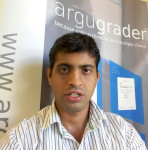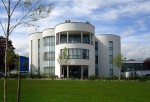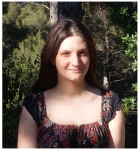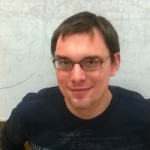
We are delighted to welcome Prakash Poudyal who is visiting us for the week to learn more about techniques for argument mining. Prakash comes to us from the University of Evora in Portugal, where he is an ERASMUS Mundus student.

We are delighted to welcome Prakash Poudyal who is visiting us for the week to learn more about techniques for argument mining. Prakash comes to us from the University of Evora in Portugal, where he is an ERASMUS Mundus student.

RCUK Stipend (£14,296 tax-free per annum in 2016/17).
Fixed Term 42 months.
Applications are invited for a PhD student to work in the interdisciplinary area lying between computational linguistics and argumentation. The studentship aims to explore techniques in computational linguistics, text mining and deep learning to exploit theories of argument structure and classical rhetoric in order to automatically identify human reasoning in unconstrained natural language texts. Because of the team’s current research with IBM, the research conducted as a part of this PhD studentship will also be able to make use of Bluemix and Watson components.
Argument Mining – automatically extracting the structure of reasoning from text – is an exciting and rapidly expanding area of computational linguistics and text analytics. In 2013, there were only a handful of papers in the area; since then, there have been a range of specialised international events, including a new annual workshop series, hundreds of papers, and dozens of research groups around the world gearing up to tackle the problem. The Centre for Argument Technology is playing a significant role in this field, providing not only theoretical advances but also some of the most widely used software tools and datasets.
The PhD student will be able to explore theories of argument structure from linguistic and computational perspectives with a view to automatically extracting such structure. The work will involve working in one or more application domains, and could involve working with commercial partners.
A basic understanding of linguistics or computational linguistics would be a significant advantage, whilst exposure to theories of reasoning, argument or critical thinking would be a benefit. Candidates would typically be expected to have, or be on track for, a first class honours degree or equivalent, or a distinction at Masters level.
The post will be held in the Centre for Argument Technology in the School of Science & Engineering at the University of Dundee. At the most recent REF, research in the discipline of Computer Science was rated third in Scotland, with 79% of its research rated world-leading or internationally excellent (4* or 3*). Dundee has been ranked amongst the top places in the world for scientists to work (The Scientist), and has one of the lowest costs of living in the UK.
Though candidates of any nationality may apply, the post only includes fees at Home/EU level, so fees would be levied by the University on students who do not meet the definition of Home/EU students.
The starting date for the 42-month PhD studentship is negotiable.
More information is available from the research group web site at http://arg.tech, and applicants should apply by sending a CV and covering letter to Prof. Chris Reed. Closing date for applications is 31 August 2016.

We are delighted today to welcome Jacky Visser to the ARG-tech team. Jacky joins us from the University of Amsterdam and will be working as a postdoc on the EPSRC-funded Argument Mining project.

We are delighted to welcome Maria Boritchev from ENS Lyon who will be visiting the group from the beginning of June until the middle of August. Maria will be working on techniques for argument mining.

We are delighted to welcome Elaine McIntyre to the group as secretary and PA. Elaine will be supporting much of the day-to-day smooth running of the group, and will also be contributing to looking after relationships with our commercial partners, collaborators and users.

Vacancy for Lecturer/Senior Lecturer/Reader
£34,576 to £55,389 Full Time, Permanent. Closing Date: 27 February 2016
The University of Dundee’s School of Science & Engineering is advertising several permanent posts including one covering the Centre for Argument Technology. We are particularly keen to receive applications from candidates in Computational Linguistics to expand the group’s research in Argument Mining (see argmining2016.arg.tech and arg.tech/am), but welcome applications in all areas of the overlap between argumentation and artificial intelligence. A strong publication profile is essential, and for more senior appointments, so is a track record of funding success.
For further information about the Centre for Argument Technology, please see arg.tech or contact Prof. Chris Reed; for more information about the position, see arg.tech/lecturer. General details follow.
Summary of Job Purpose and Principal Duties
The University of Dundee is seeking an exceptional candidate to join one of our Computing research groups, based within the School of Science and Engineering. The successful candidate will develop new research lines within either the (i) Human Centred Computing Group; (ii) the Centre for Argument Technology; or (iii) the Space Technology Centre. Full information on the current research in each group can be found in the Further Particulars.
The successful candidate is expected to have a strong track record of research and a clear research plan that articulates with (or expands significantly) one of these areas. They will be expected to contribute to the development of research in this area by publishing in the highest quality journals and attracting appropriate research funding. For appointments at Grade 8 and 9, candidates are expected to show evidence of having attracted independent funding. The School encourages applications from holders of personal Fellowships.
Additionally, the successful candidate will be expected to take an active role in the teaching of undergraduate computing programmes as well as supporting teaching at Masters level.
Job Summary
Application RequirementsIn addition to the online form, applicants must include with their application:
Apply here.

We are delighted to be hosting a seminar today from Annette Hautli-Janisz from the University of Konstanz, who will be speaking at 1030 in the ARG-lab on her work with the VisArgue project. As ever, all are welcome.

The Centre for Argument Technology is now recruiting one further postdoctoral research assistant and one PhD student in connection with a new EPSRC-funded project on Argument Mining working in collaboration with IBM.
Postdoctoral Research Assistant in Computational Linguistics
Grade 7 (£30,434 – £37,394)
Fixed Term 36 months
Applications are invited for a research assistant to work on an EPSRC-funded project in computational linguistics and argumentation. The Argument Mining project aims to develop a range of techniques in computational linguistics to exploit theories of argument structure and classical rhetoric in order to automatically identify human reasoning in unconstrained natural language texts. The project involves two commercial partners: one a local tech company, the other, IBM and the Watson team in particular.
Argument Mining – automatically extracting the structure of reasoning from text – is an exciting and rapidly expanding area of computational linguistics and text analytics. Two years ago there were fewer than a dozen papers in the area; since then, there have been five international events, hundreds of papers, and at least 20 research groups around the world gearing up to tackle the problem. The Centre for Argument Technology is playing a key role in this field, providing not only significant theoretical advances but also some of the most widely used software tools and datasets.
Building the theory in the project will demand an exceptionally high calibre individual who can develop an understanding of, and then balance not only statistical and machine learning techniques from computational linguistics with theories developed in the humanities for describing argument and rhetoric, but also the competing demands of rigorous theory with practical system-building.
A PhD in an appropriate area is essential, as is experience with techniques in linguistics or computational linguistics. Exposure to linguistic or rhetorical models of argument, to discourse analysis or theories of structural linguistics, or to the theory of rhetoric would be a distinct advantage. For such broad-reaching interdisciplinary research, however, specific experience will be less important than academic aptitude.
The post will be held in the Centre for Argument Technology in the School of Science & Engineering at the University of Dundee. At the most recent REF, research in the discipline of Computer Science was rated third in Scotland, with 79% of its research rated world-leading or internationally excellent (4* or 3*). Dundee has been ranked amongst the top places in the world for scientists to work (The Scientist), and has one of the lowest costs of living in the UK.
The starting date for the 36-month post is negotiable in 2016; the project will start on 01 January 2016, and it will run for four years.
More information is available from the research group web site at http://arg.tech, and applications will be handled online at http://arg.tech/vacancy, or for more information, please contact Prof. Chris Reed. Closing date for applications is 27 November 2015.
Vacancy Reference Number: SSEN0004, School of Science & Engineering
PhD Studentship
RCUK Stipend (£14,057 tax-free in 2015/16)
Fixed Term 42 months
Applications are invited for a PhD studentship to work in the interdisciplinary area lying between computational linguistics and argumentation. The studentship is associated with the EPSRC-funded Argument Mining project which aims to develop a range of techniques in computational linguistics to exploit theories of argument structure and classical rhetoric in order to automatically identify human reasoning in unconstrained natural language texts. The project involves two commercial partners: one a local tech company, the other, IBM and the Watson team in particular.
Argument Mining – automatically extracting the structure of reasoning from text – is an exciting and rapidly expanding area of computational linguistics and text analytics. Two years ago there were fewer than a dozen papers in the area; since then, there have been five international events, hundreds of papers, and at least 20 research groups around the world gearing up to tackle the problem. The Centre for Argument Technology is playing a key role in this field, providing not only significant theoretical advances but also some of the most widely used software tools and datasets.
The PhD student will be able to explore theories of argument structure from linguistic and computational perspectives with a view to automatically extracting such structure. The work will involve working in one or more application domains, and could involve working with the commercial partners.
A basic understanding of linguistics or computational linguistics would be a significant advantage, whilst exposure to theories of reasoning, argument or critical thinking would be a benefit. Candidates would typically be expected to have, or be on track for, a first class honours degree or equivalent, or a distinction at Masters level.
The post will be held in the Centre for Argument Technology in the School of Science & Engineering at the University of Dundee. At the most recent REF, research in the discipline of Computer Science was rated third in Scotland, with 79% of its research rated world-leading or internationally excellent (4* or 3*). Dundee has been ranked amongst the top places in the world for scientists to work (The Scientist), and has one of the lowest costs of living in the UK.
The starting date for the 42-month PhD studentship is negotiable in 2016; the project to which the studentship is connected starts on 01 January 2016, and it will run for four years.
More information is available from the research group web site at http://arg.tech, and applicants should apply by sending a CV and covering letter to Prof. Chris Reed. Closing date for applications is 28 February 2016.

We’re delighted to host Dr. Marcin Koszowy from the University of Białystok who is visiting this week. Marcin is working with Kasia and Rory on issues related to ethos and authority in argumentation. He will be delivering a masterclass with Kasia on Thursday, 24 Sep 2015 10am-3pm on ethos in argumentation — let us know if you’d like to join.